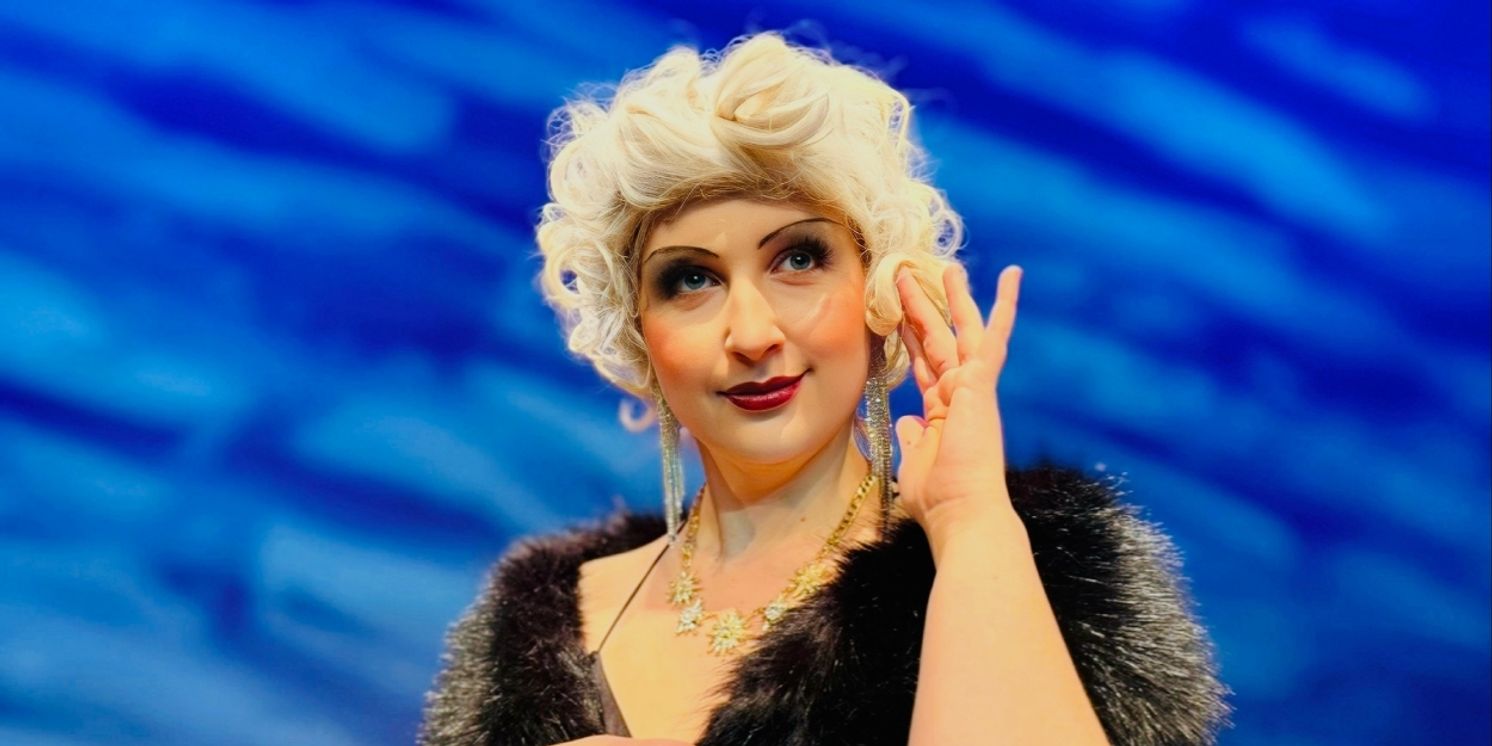Review: MAE WEST AFTER DARK at Abbey Theatre Of Dublin
DiFrancesco's one woman play gives insight to the life of influential actress

When Francesca DiFrancesco would bring up the subject of actress Mae West with friends, they would respond in one of two ways: complete ignorance or bad parodies.
“(Those who knew of her) would just quote her one liners and start walking and talking like her,” DeFrancesco said. “That is a big problem for me.”
As a response to both groups, DeFrancesco penned Mae West AFTER DARK while a student at Denison University. The one-woman, 90-minute play about the Queen of the Double Entendre debuted with a brief four-show run Feb. 6-Feb. 9 at The Abbey Theatre of Dublin (5600 Post Road in Dublin).
You may not know the 1930s icon, but you definitely have seen the effects of her life. Nearly every siren, diva, and pop tart owes a little bit of their persona to Mae West.
You may not know it, but you’ve probably heard West’s one liners too: “Is that a pistol in your pocket … or are you just happy to see me?” or “When I'm good, I'm very good. But when I'm bad, I'm better” and of course, “Why don't you come up and see me sometime?”
DiFrancesco wrote and starred in the “one-woman herstory” of West, a move of which the starlet would have approved. Its stage was sparse, its lighting simple and its cast list small. And yet, its script was striking and its delivery was superb.
The show is set in a sultry nightclub in which West is retelling her life story. Two patrons from the audience were placed in tables on the opposite ends of the stage and West flirted with them throughout the show.
Outside of those two audience members, the only other character to be seen on stage is Sean Patrick Taylor, who plays Paul Novak, the love of West’s life. However other people make their voices heard in the play. Scott Douglas Wilson (who plays West’s father, John Patrick West) and Josie Merkle (who plays her mother Tilly West) appear as shadows behind a white screen. The two team up with Jacob Erney and director Joe Bishara to provide voice overs of various other unseen characters throughout the play.
In the script, West’s parents receive mixed reviews. Her father is described as a former professional boxer who “made the black eye the most popular accessory.” However, West’s mother gives her the strongest pieces of advice.
Near the opening of the play, Merkle’s character tells West, “I see you up on that (Vaudeville) stage. You will be the focus of all the eyes out there.”
West then takes up with a Vaudeville troupe which left her with this epiphany: “I realized early on that being yourself will take you far. When women go wrong, men go right after it.”
DiFrancesco has the West bad girl routine down to a science. After being caught with a married man, West tells the audience, “It takes two to get one in trouble. I was making waves from sea to shining sea.”
West soon ascends from Vaudeville to the Broadway stage where she discovers her voice, whether it was spoken on a stage or written in a script, adds to her siren’s song.
One of her first works, simply titled SEX, pulls in a nearly entirely male audience, including police officers who arrest her for violating “obscenity laws.”
A voice over of a judge asks, “Miss West are you trying to show contempt for this court?”
“No, I am trying my best to hide it,” West counters.
West was sentenced to eight days in jail, but the decree only added to her infamy and popularity. West describes how the warden allowed her to sleep in her silk pajamas and took her out to dinner with his wife.
“They let me off for good behavior,” she said with a knowing wink. “That was the first time I’ve ever gotten anything for good behavior.”
What really propelled West into a galaxy of stars was the invention of the “talking pictures.” After West was given minuscule roles, her mother suggested she write her own scripts,
“All these (movies) used to be about these silent sirens – Swanson and Garbo,” she said. “Now instead of seeing (just) these pretty faces… you actually heard words from them.
“(I thought) maybe I could do well in pictures because I always have something to say. And I always say it.”
DiFrancesco’s script then divulges how her words and stage presence got the actress into trouble. Editors were assigned to monitor her scripts to make sure they didn’t violate any code of ethics.
“They said characters had to sleep in separate beds and kiss in a certain way,” she said incredulously. “A complete stranger is taking away your right to your free will to lounge in a man’s lap? I have been in more laps than a napkin.
“(To combat these standards), I made sure my first drafts were absolutely filthy. They’d need a mop, a vat of bleach and a miracle to clean up what I had written.”
As a play, Mae West AFTER DARK presents a very complex picture of a complicated woman. DiFrancesco’s script as well as her performance shows West to be a multisided character. She could be both brassy and flashy as well as self-effacing and tasteful. She could be sexy, sweet, or tough as nails.
If audiences get offered a second chance at seeing this play, they would do well to “come up and see me sometime.”
Reader Reviews

Videos

